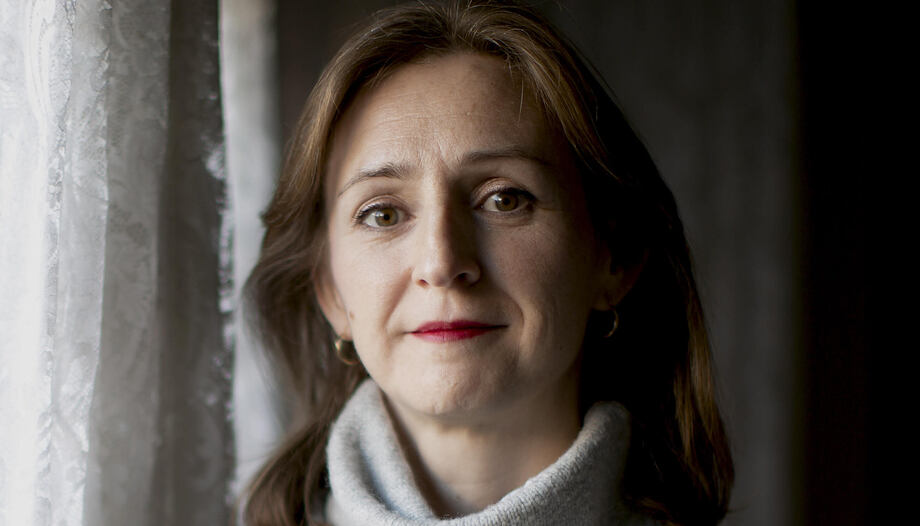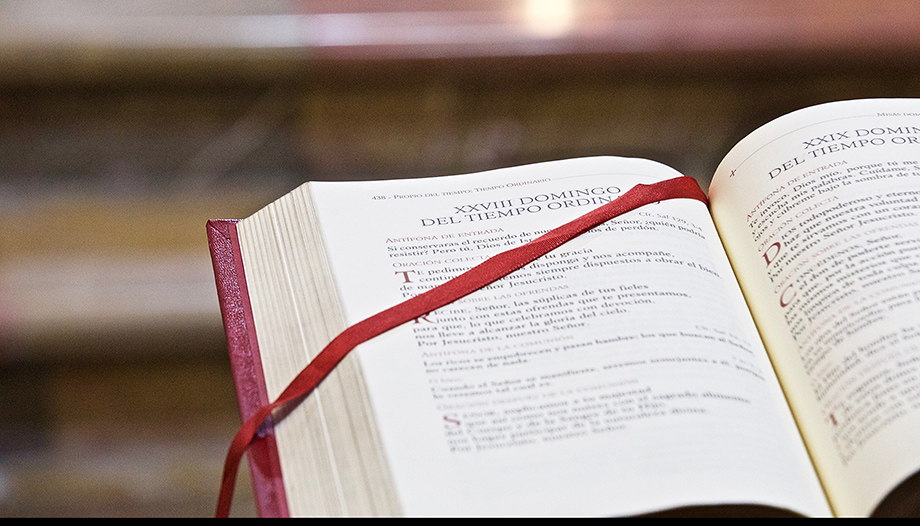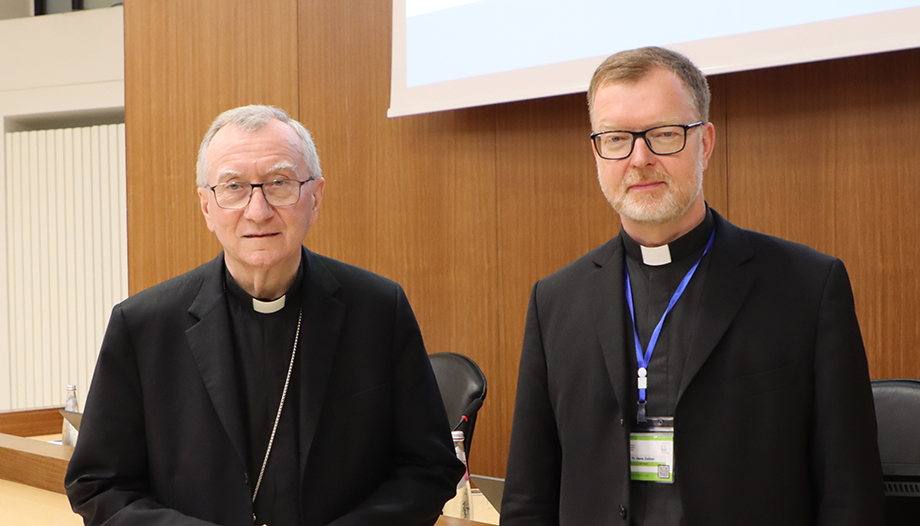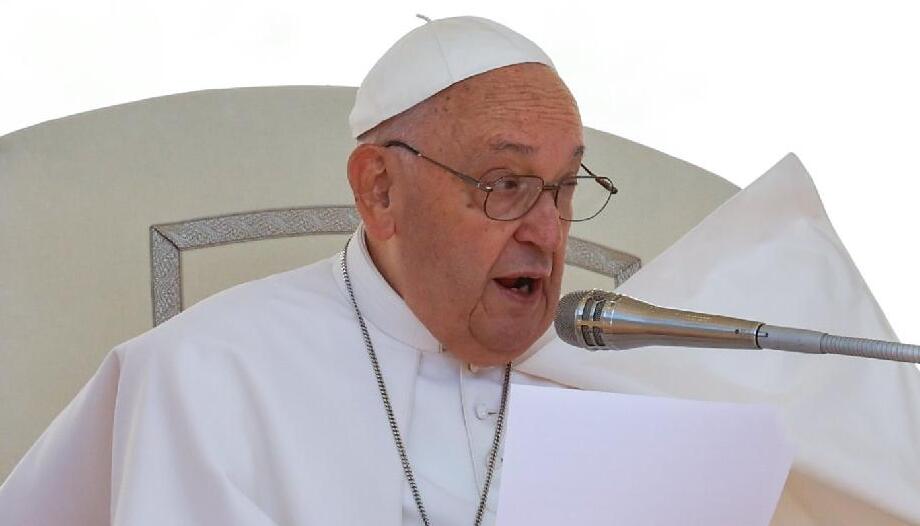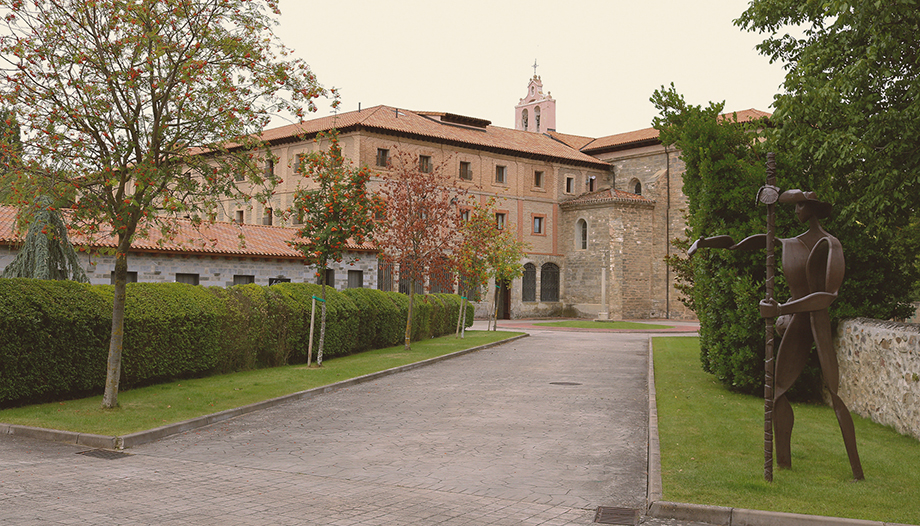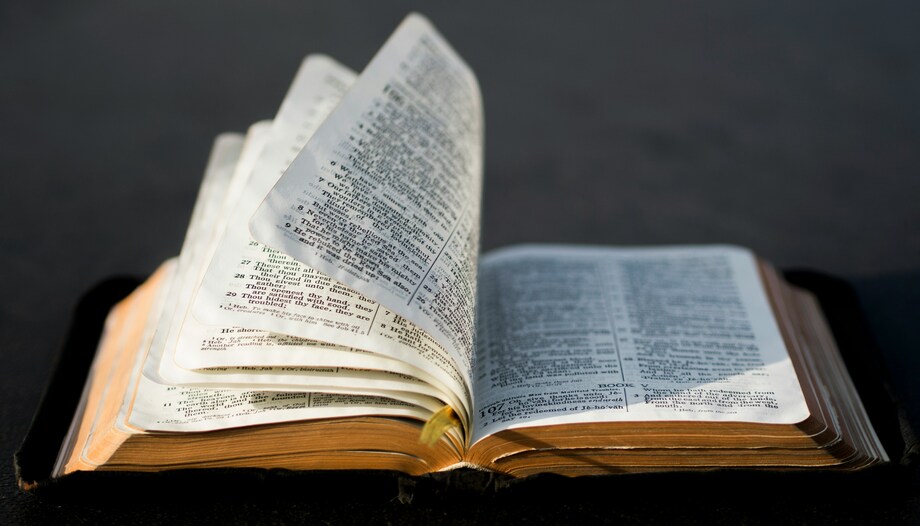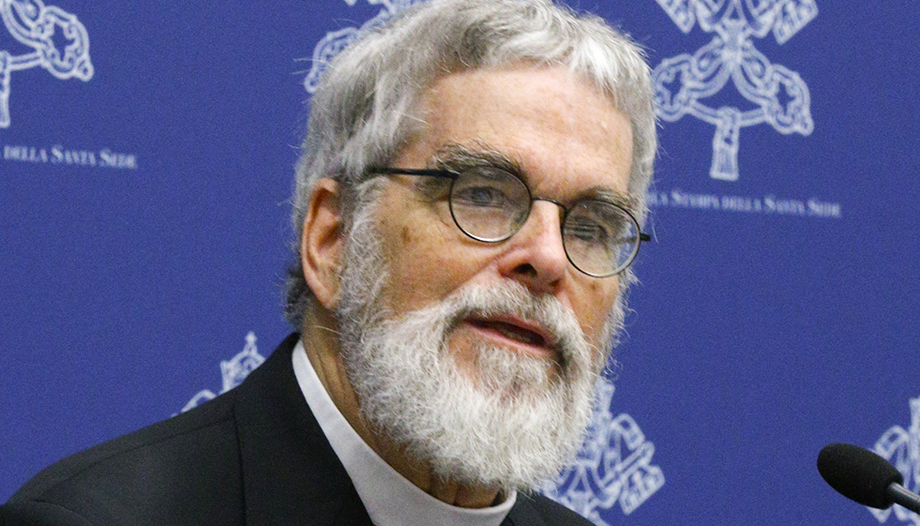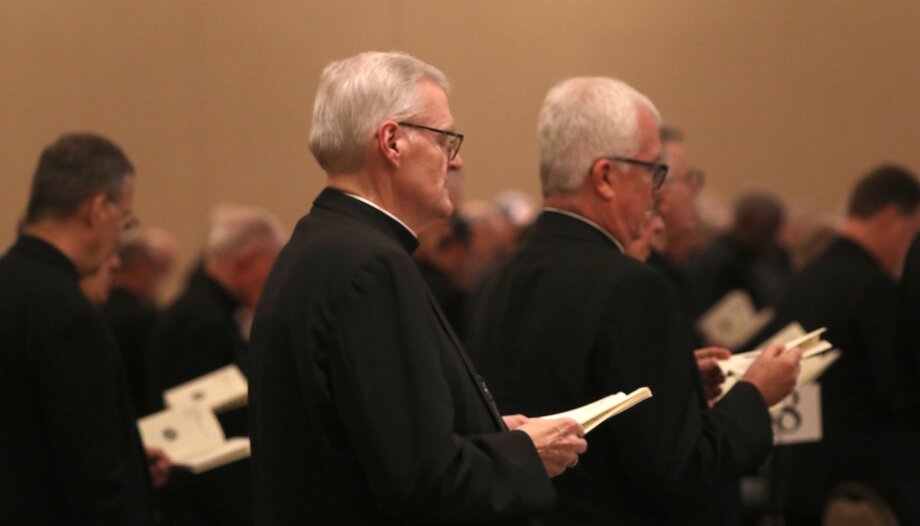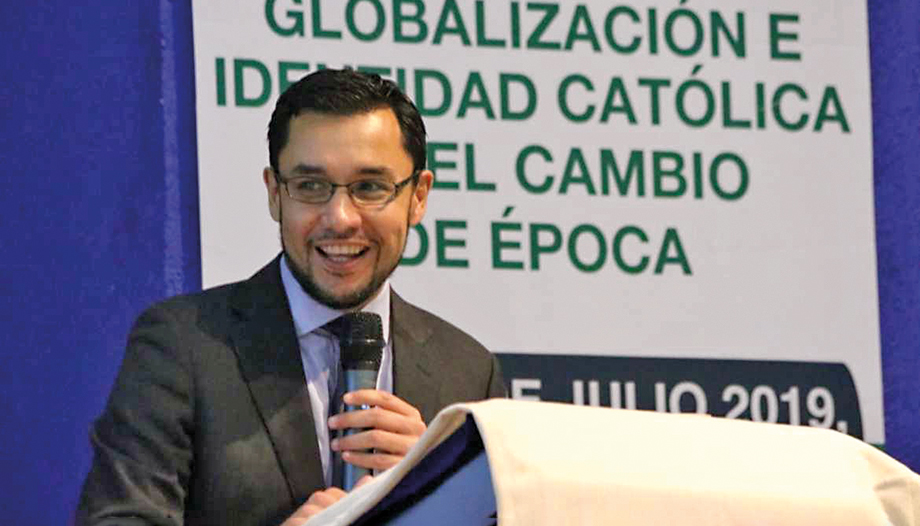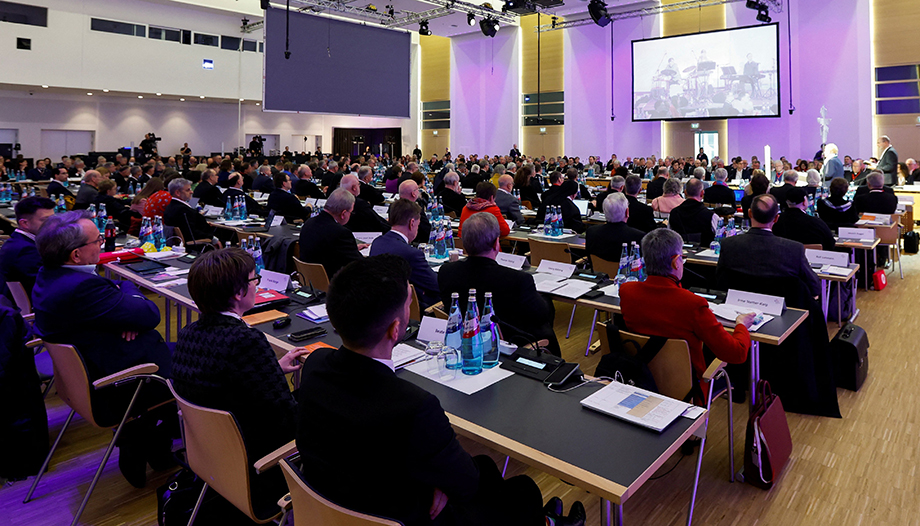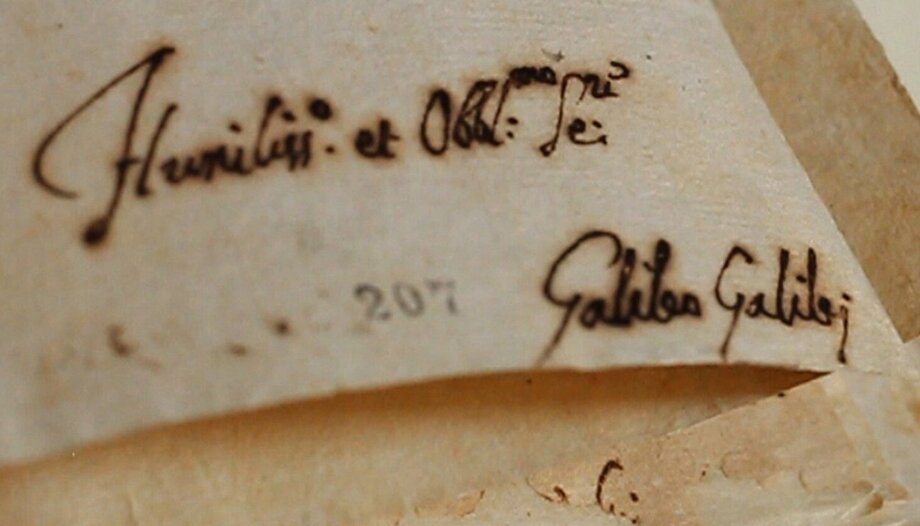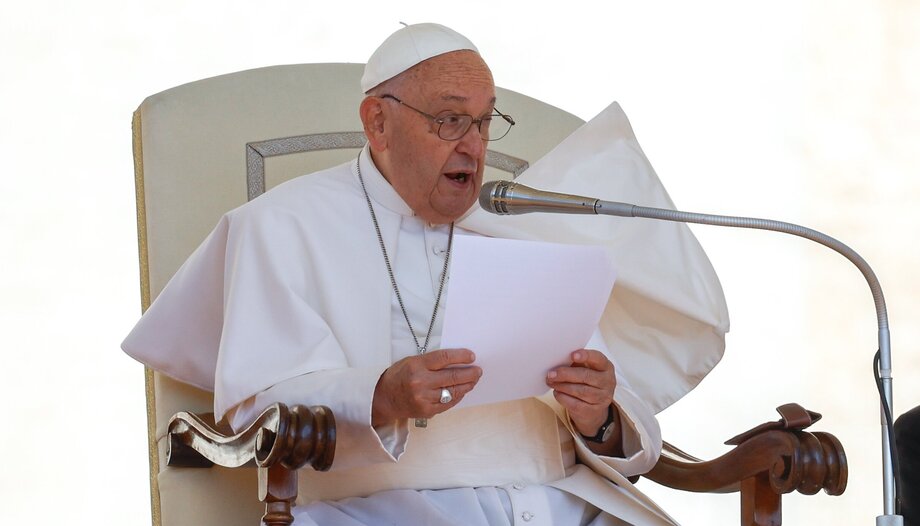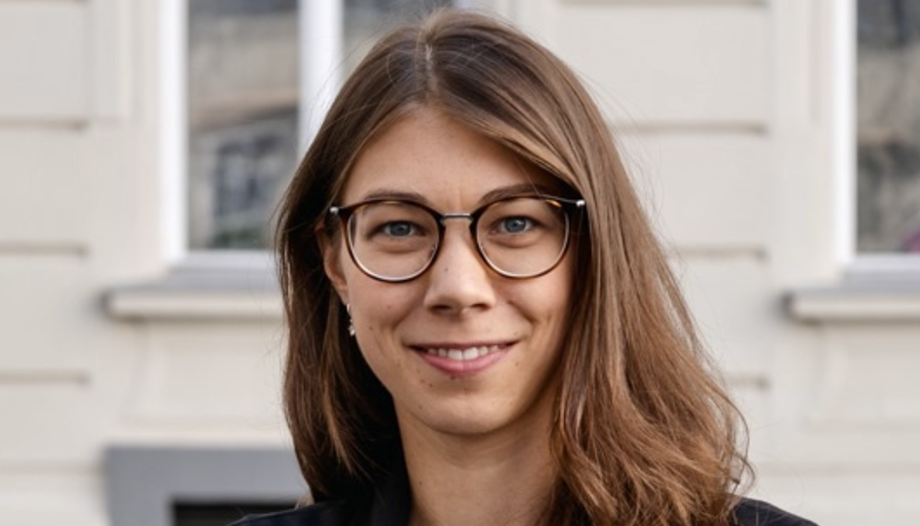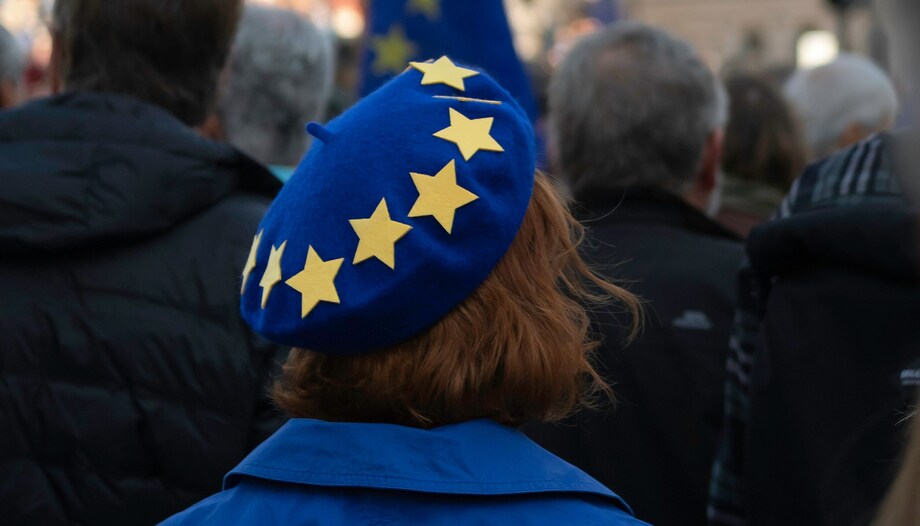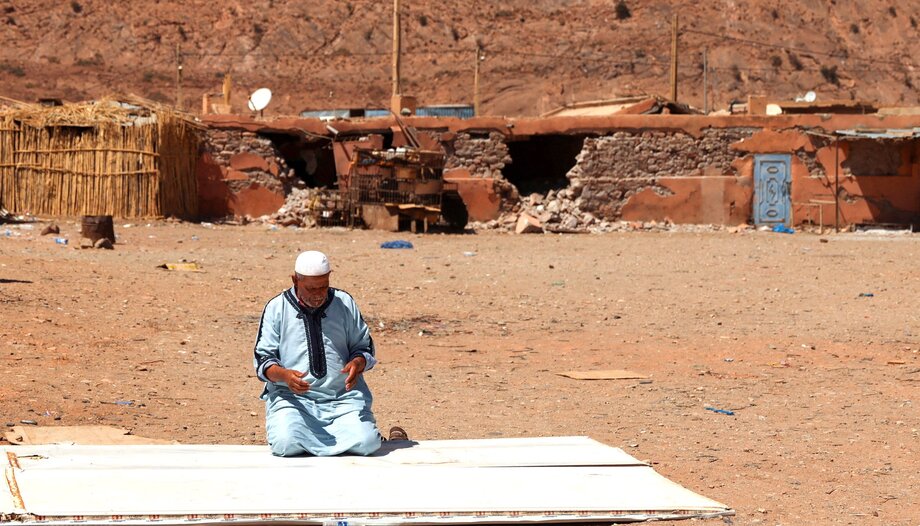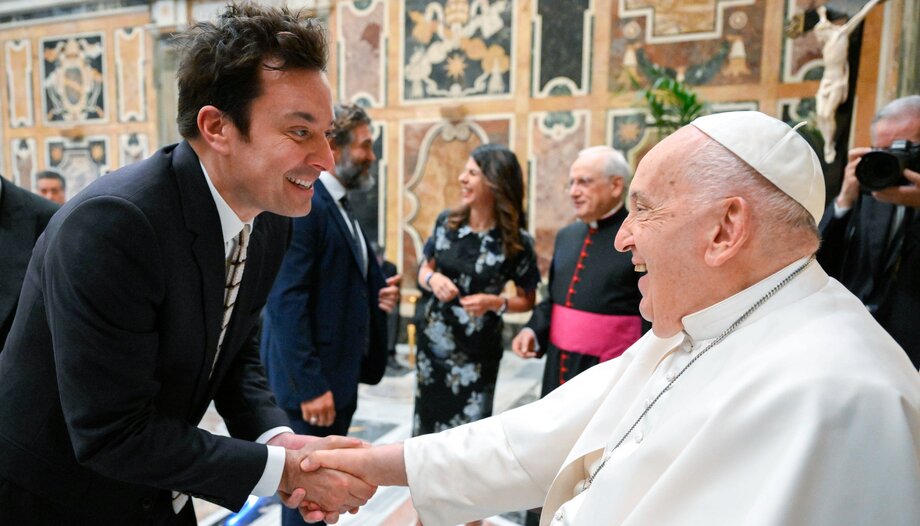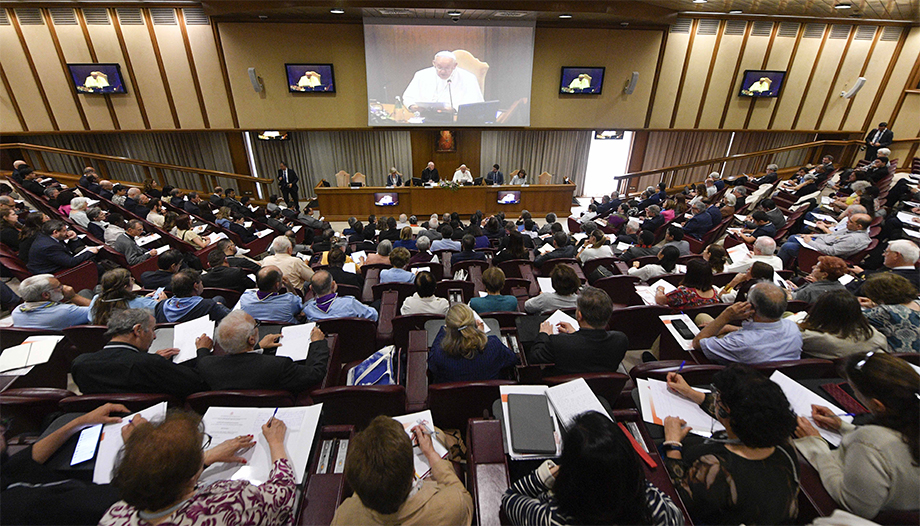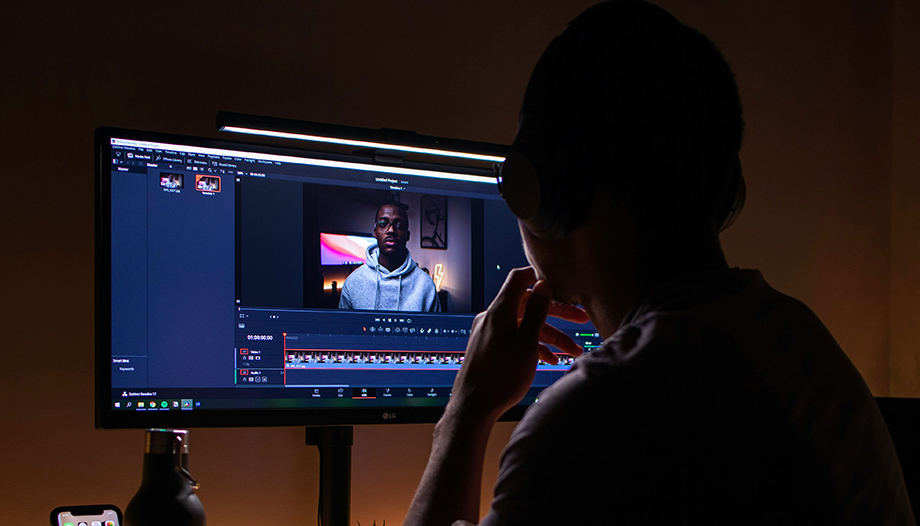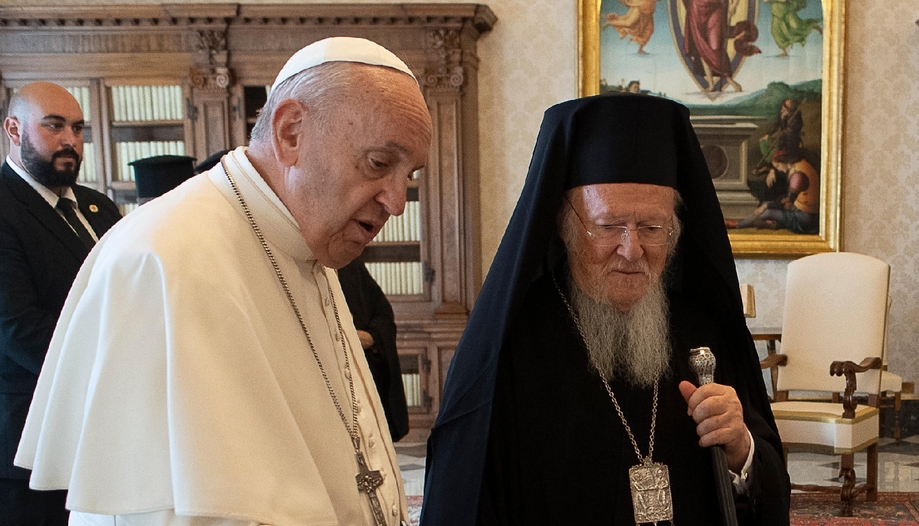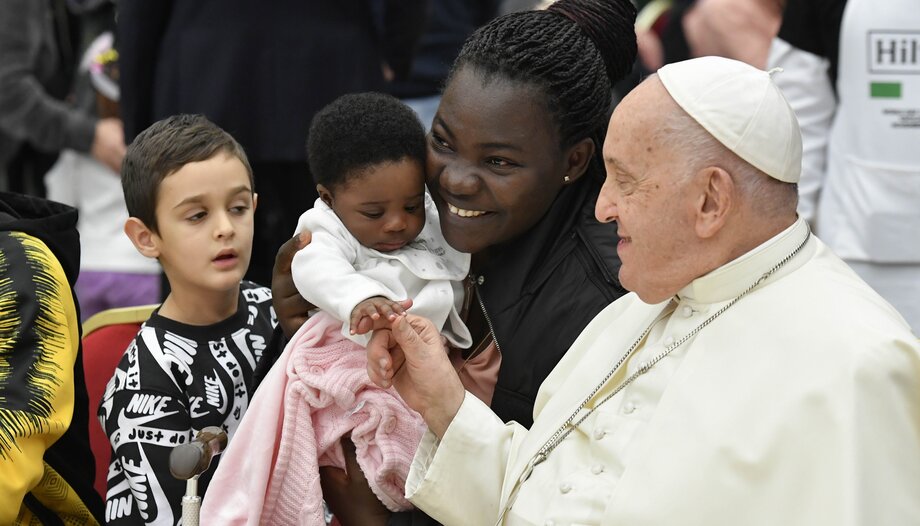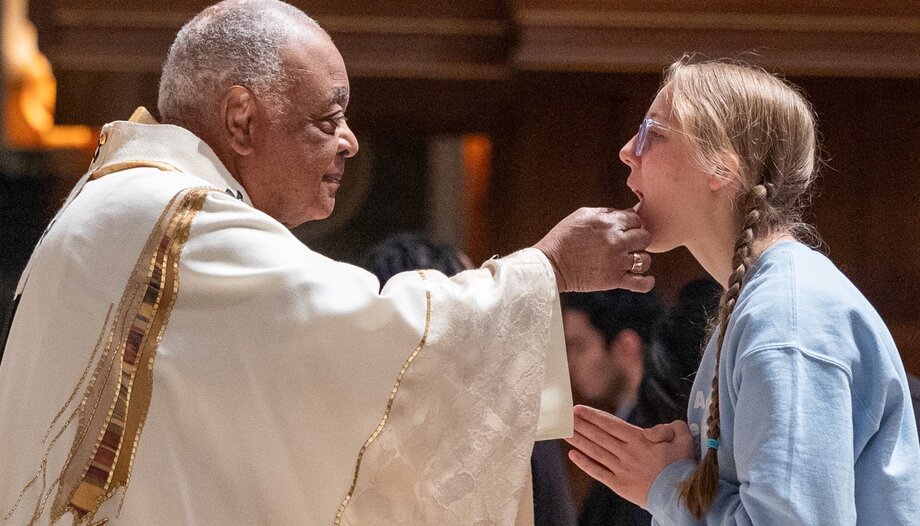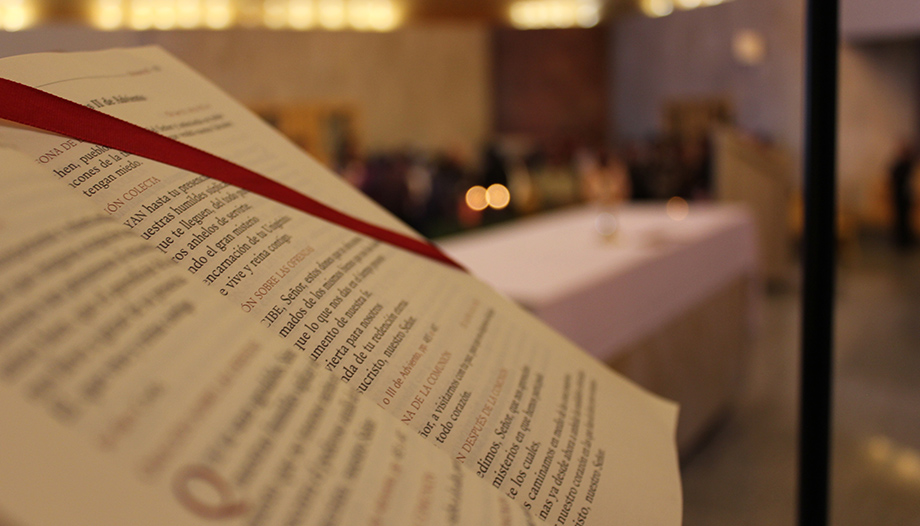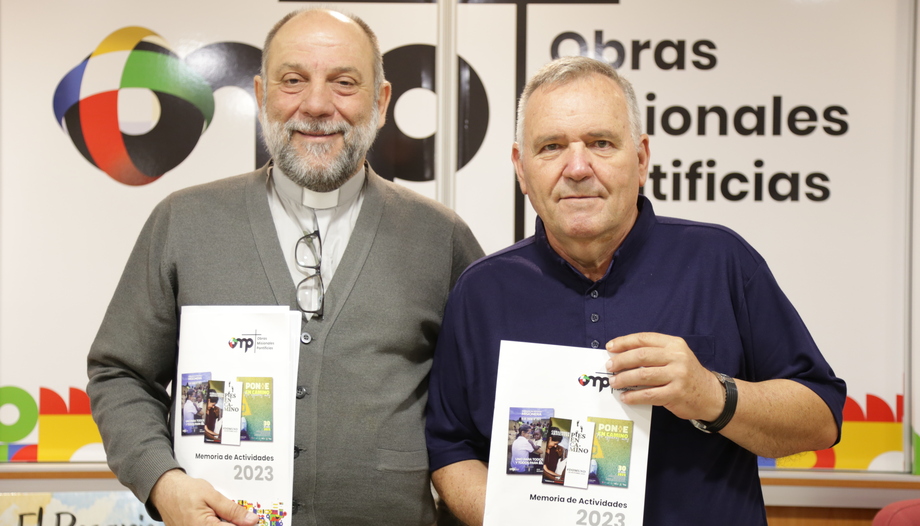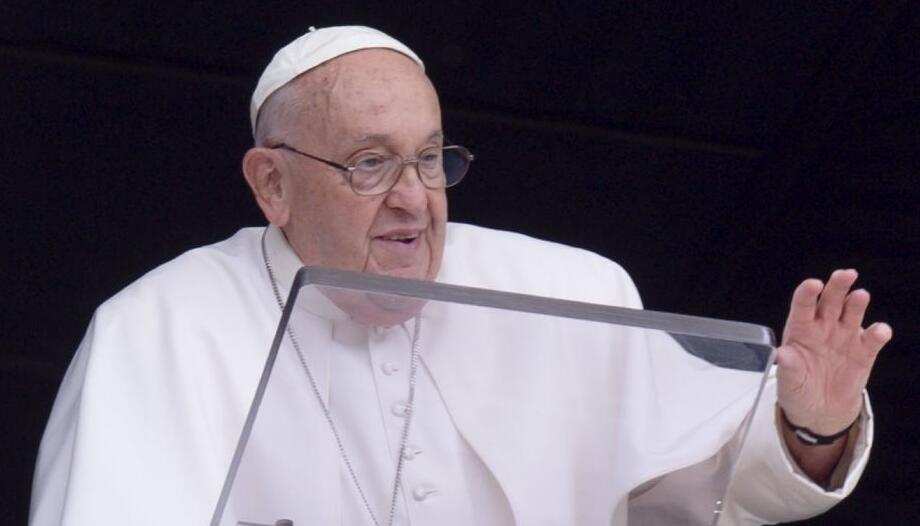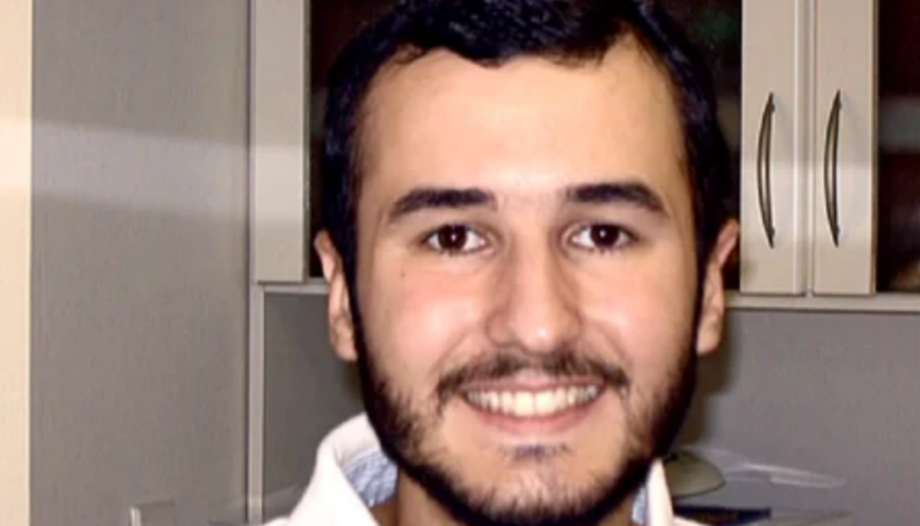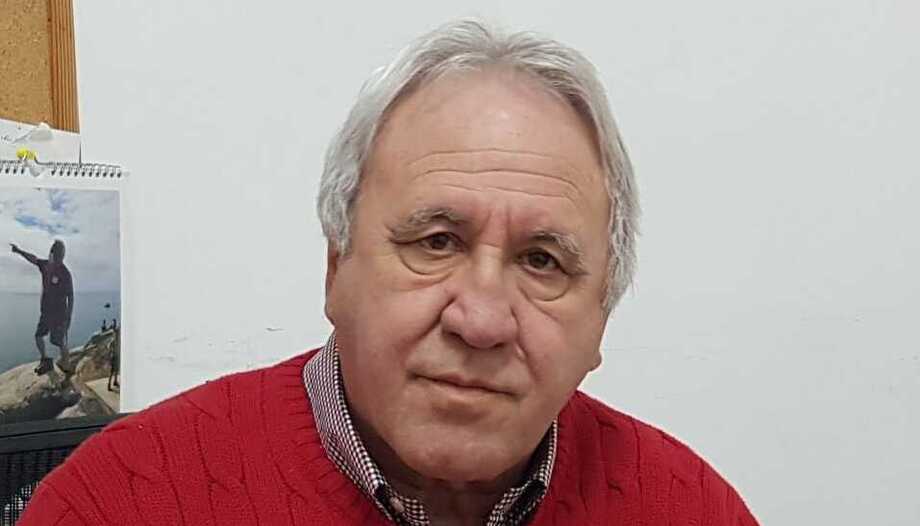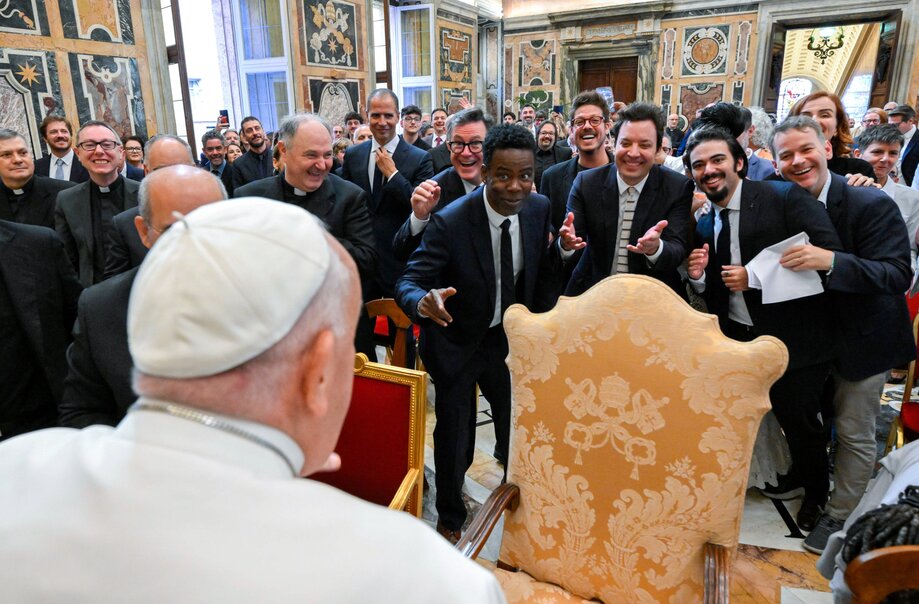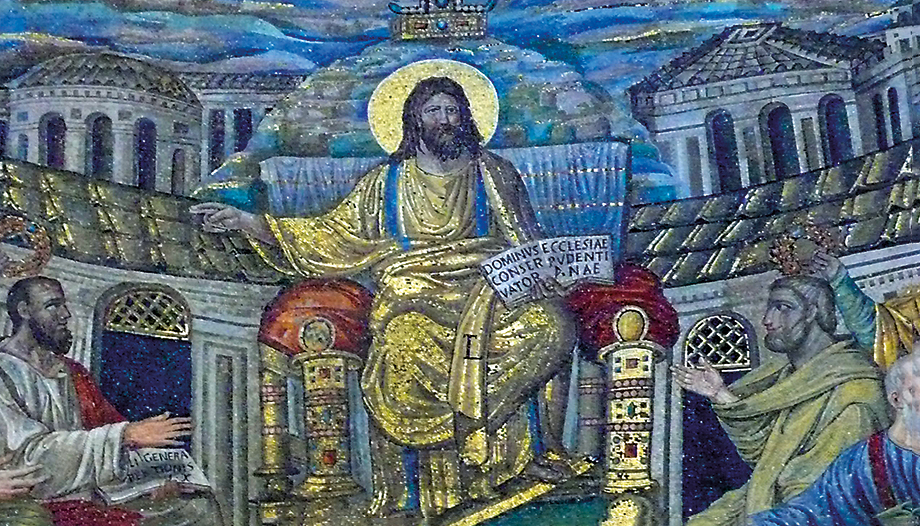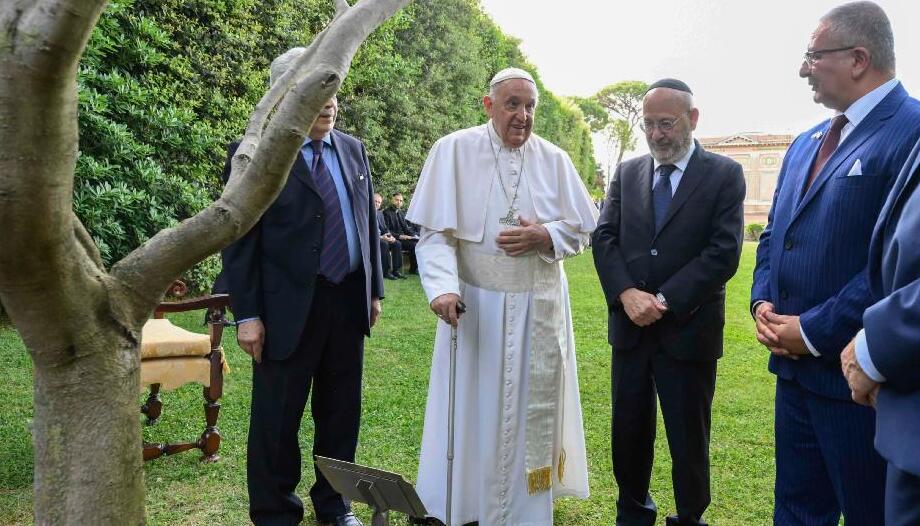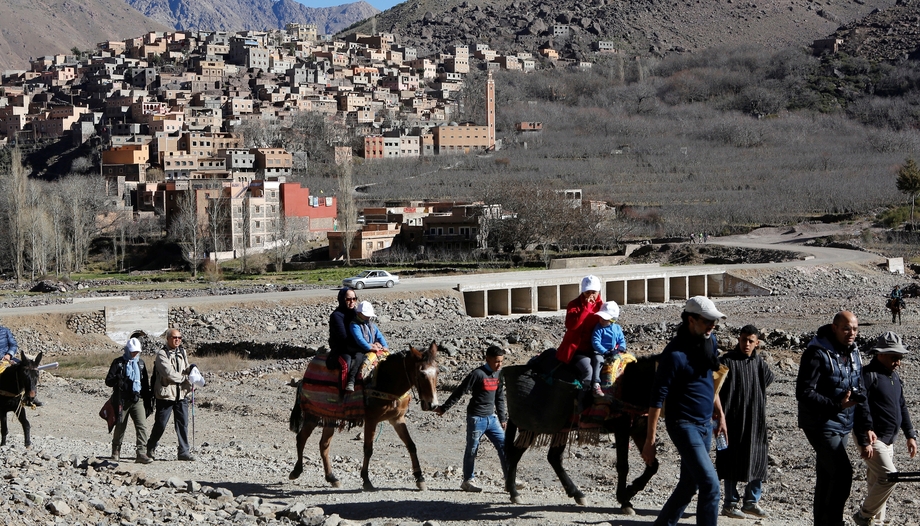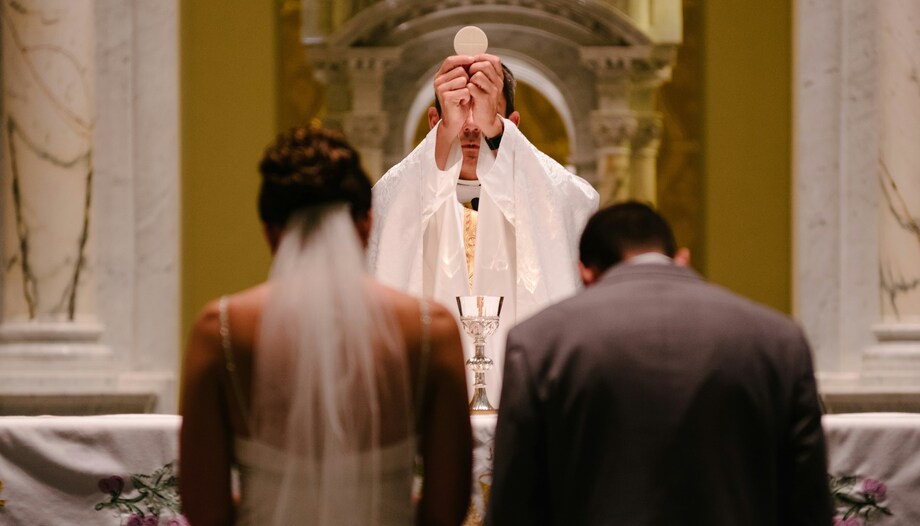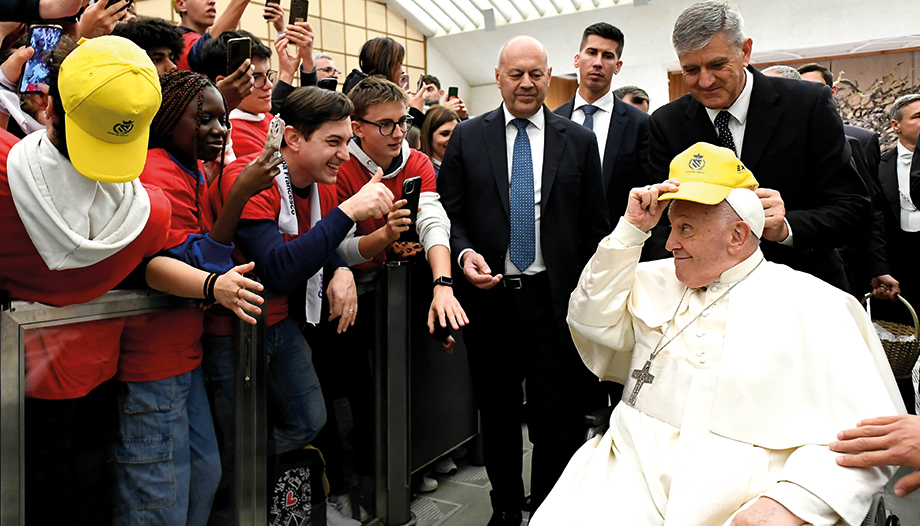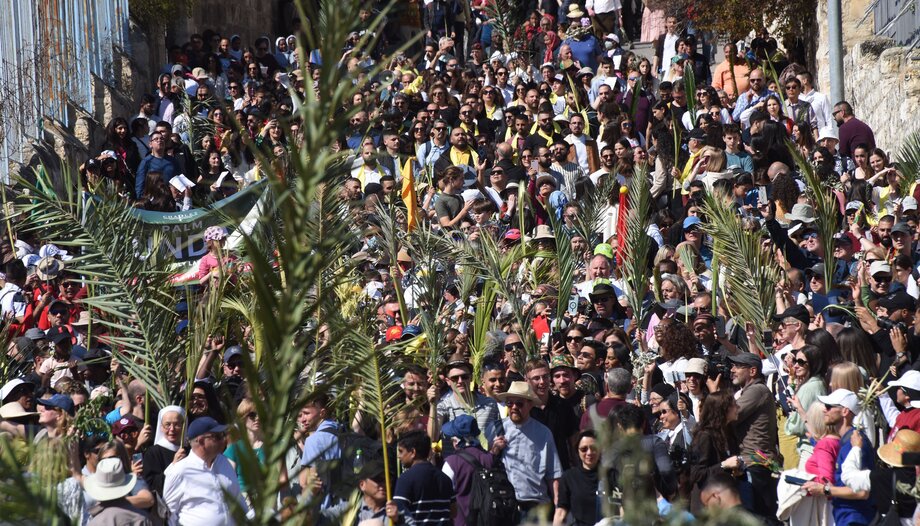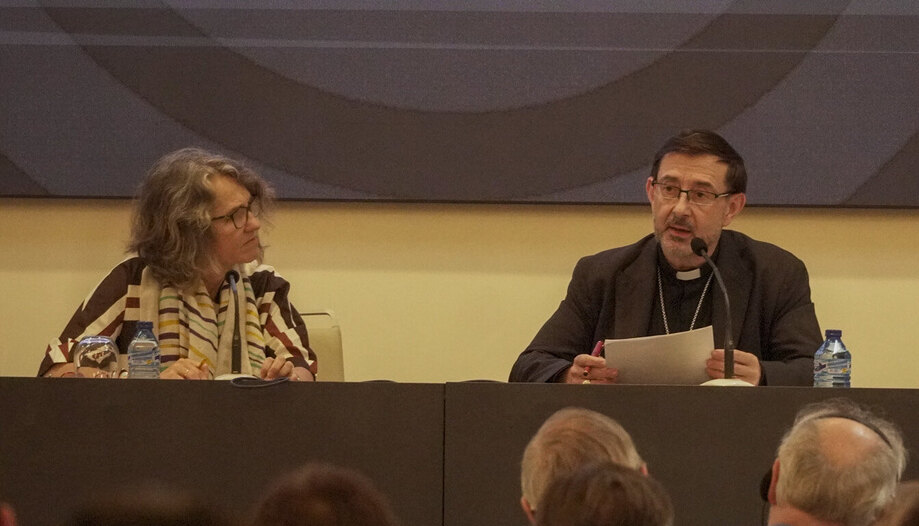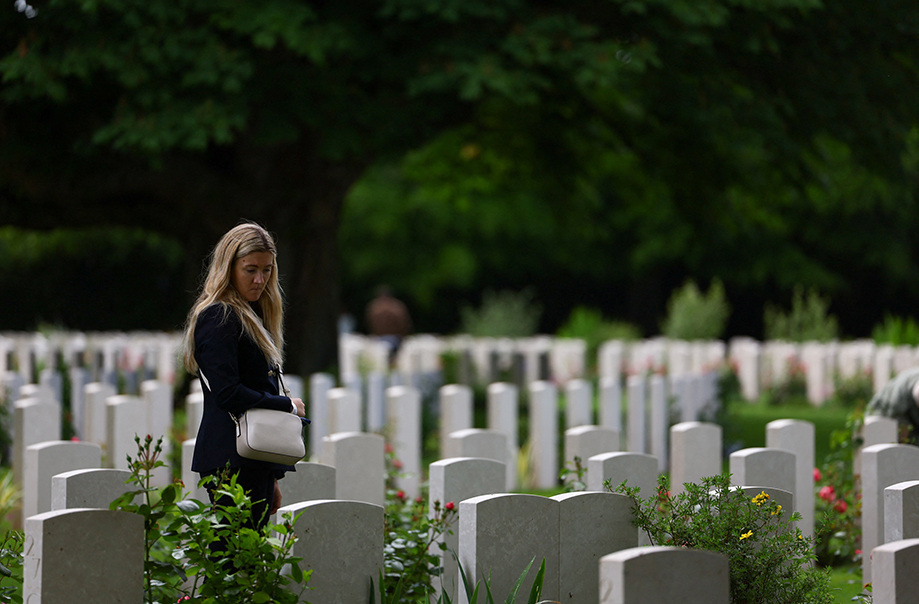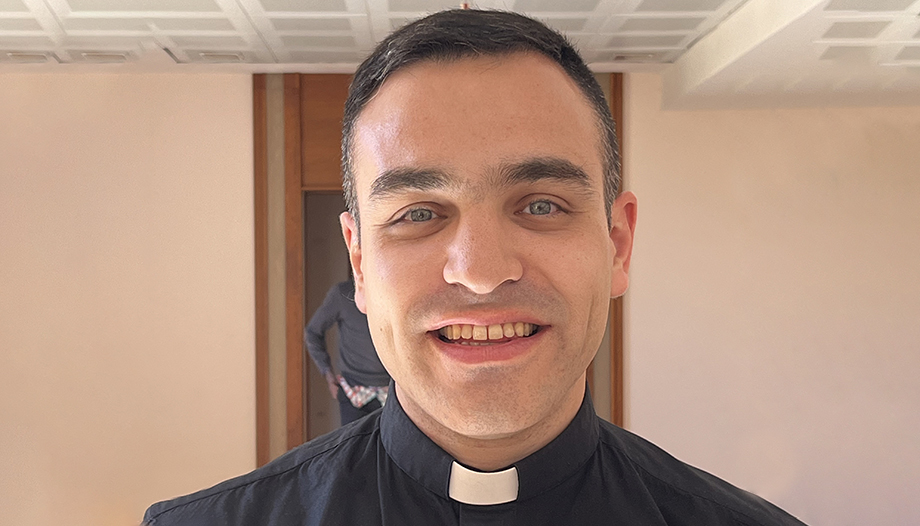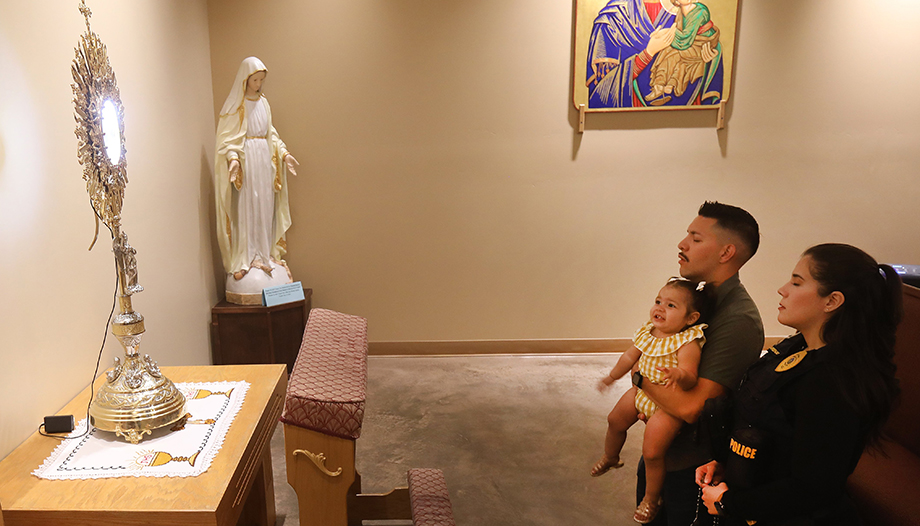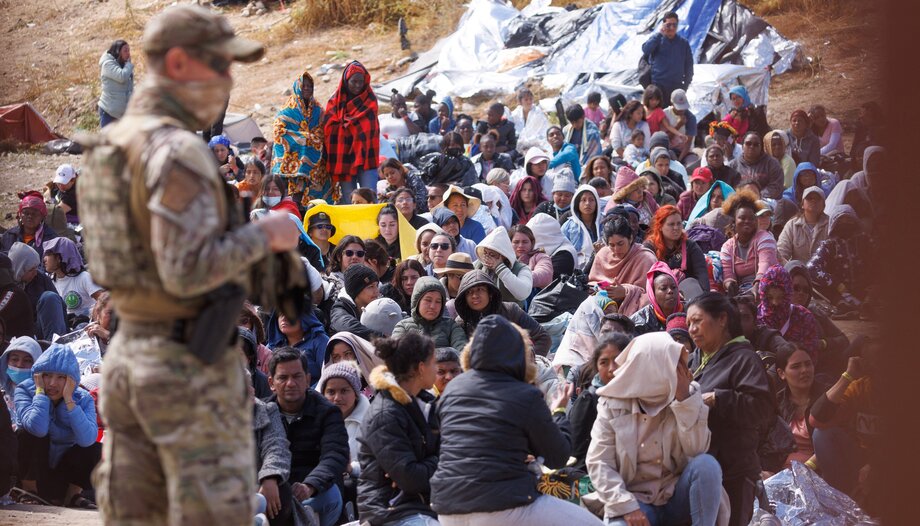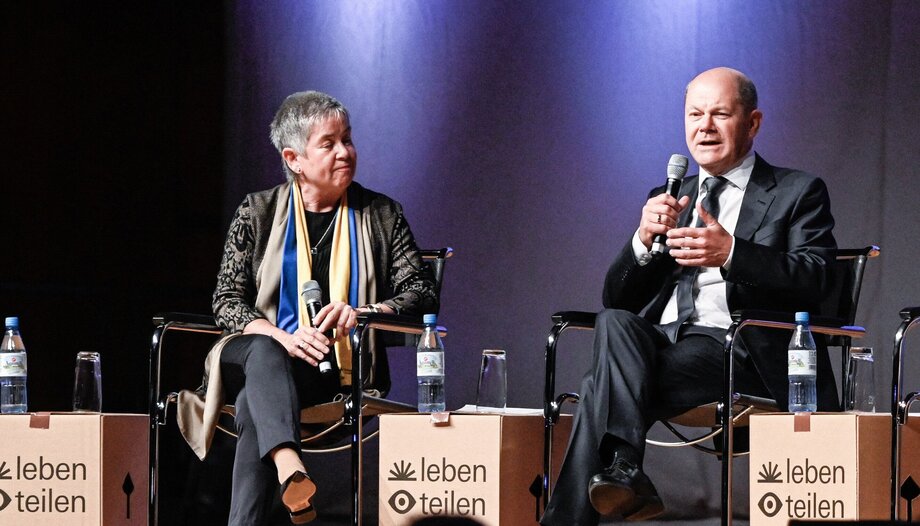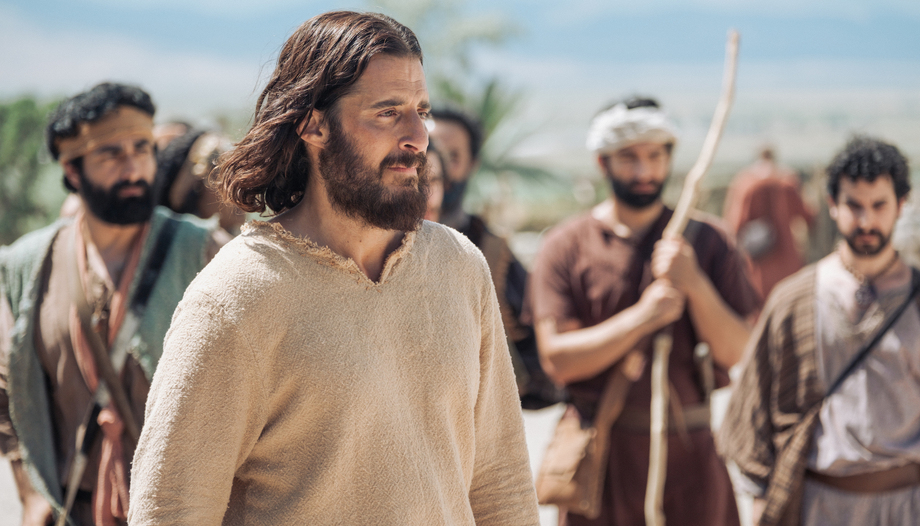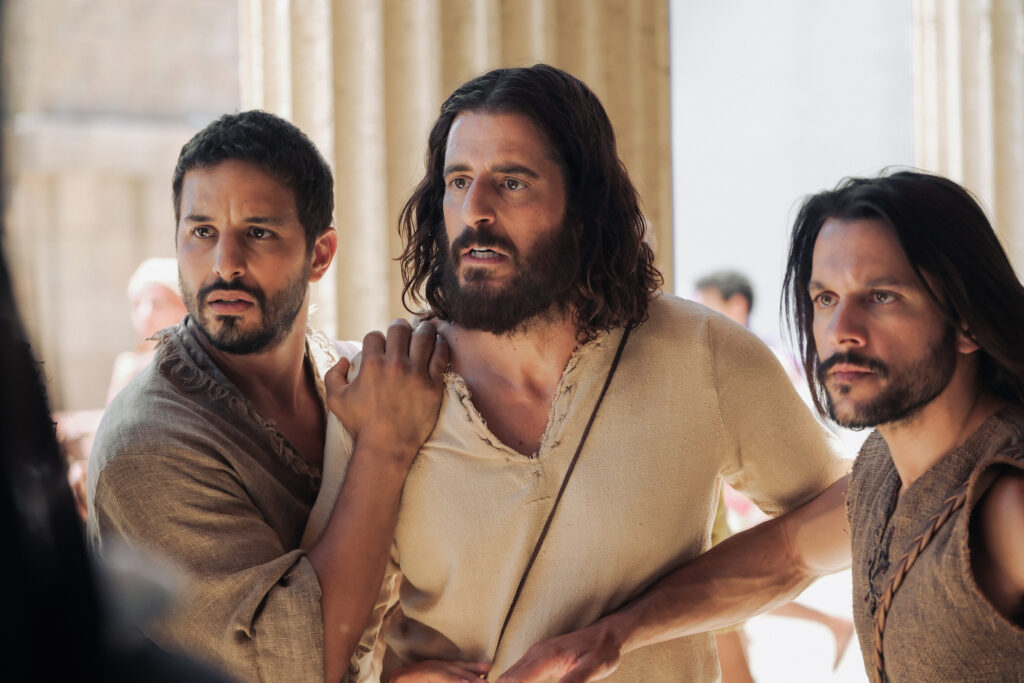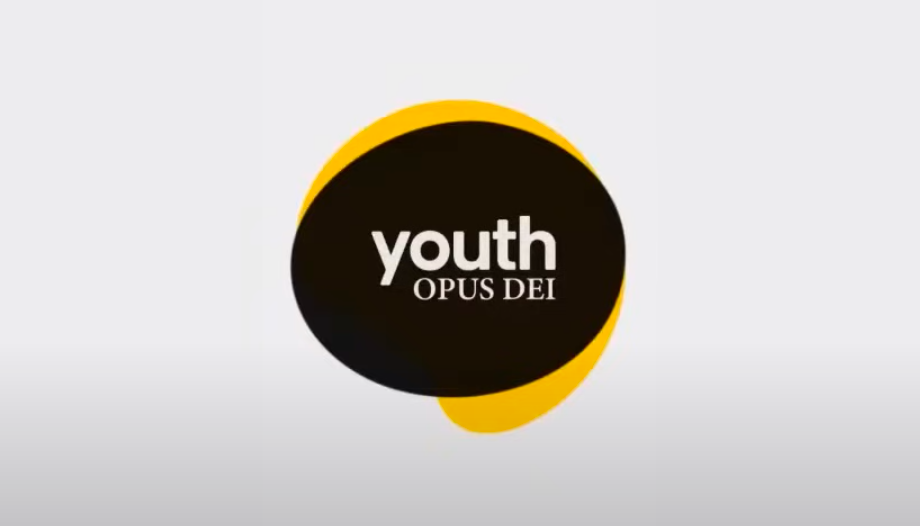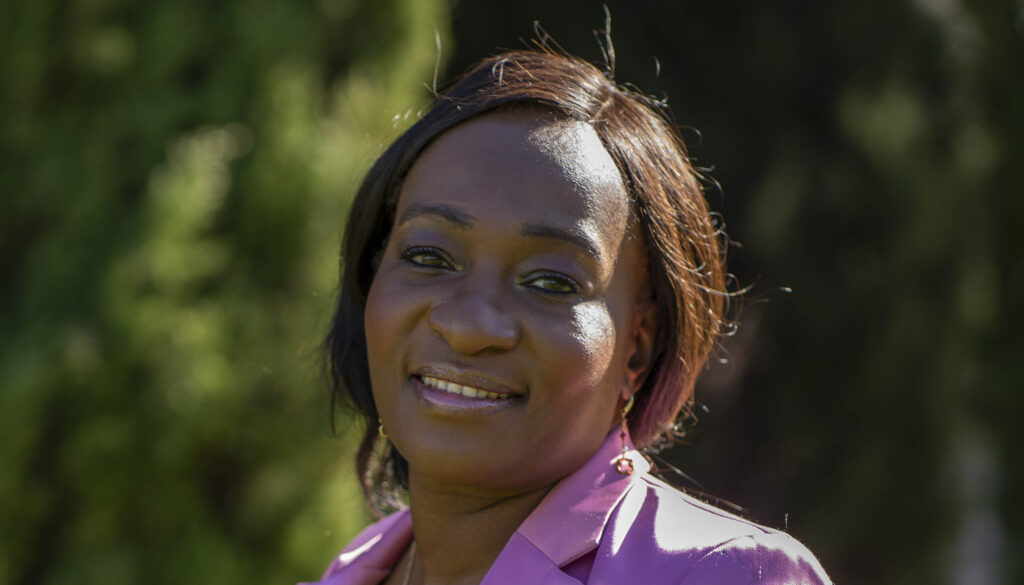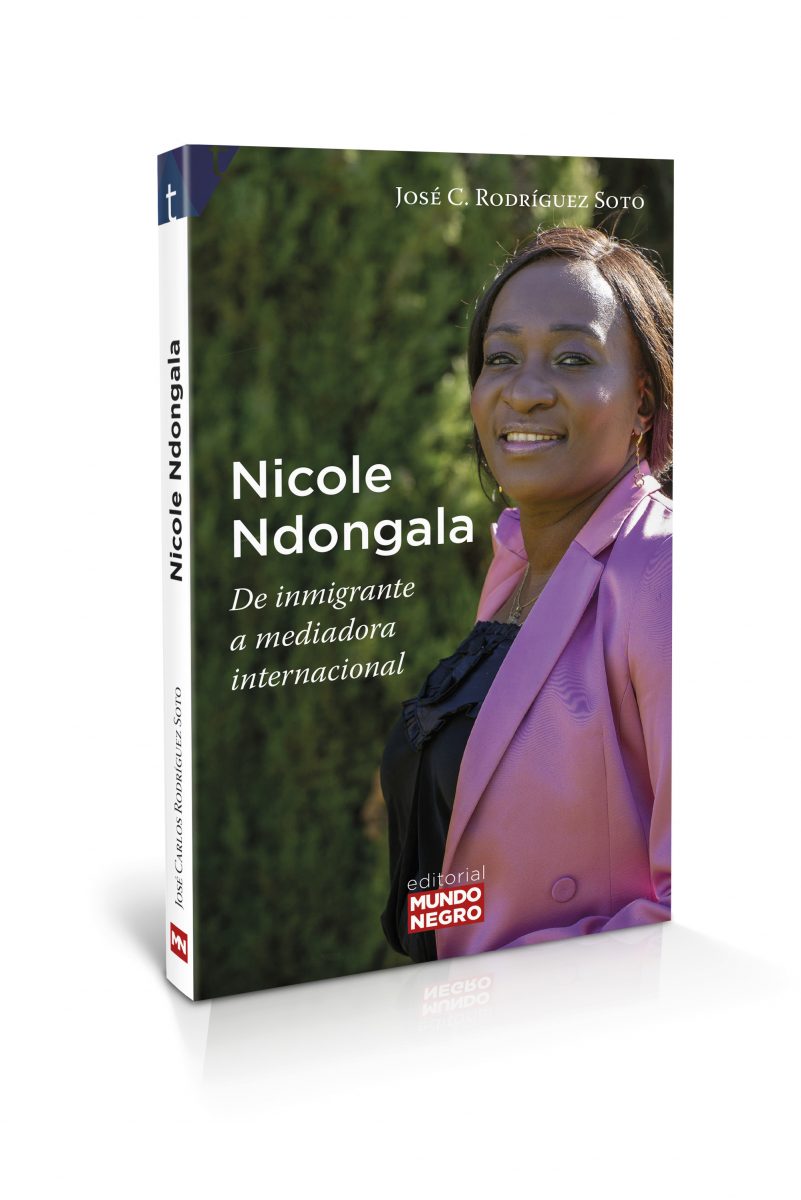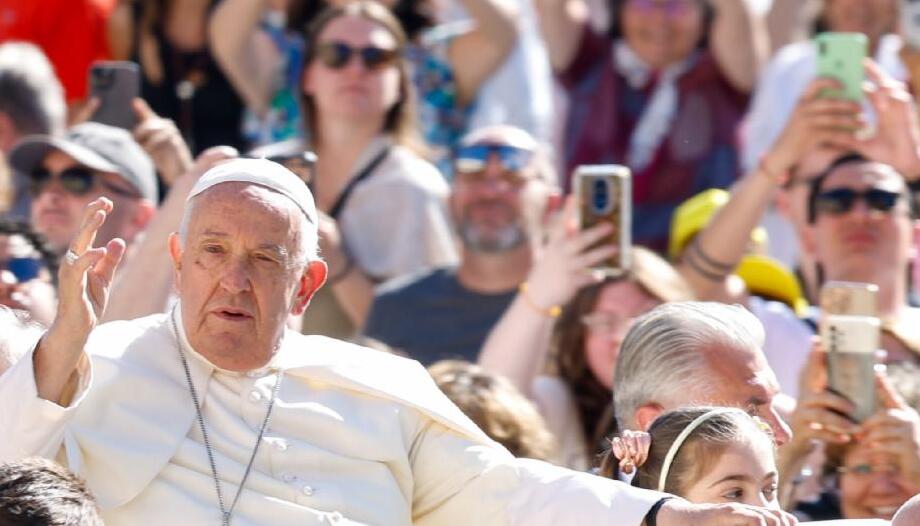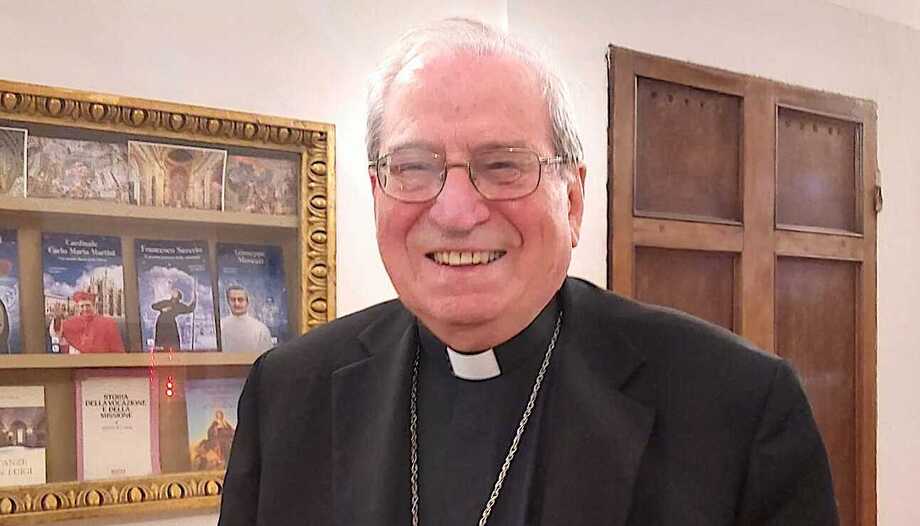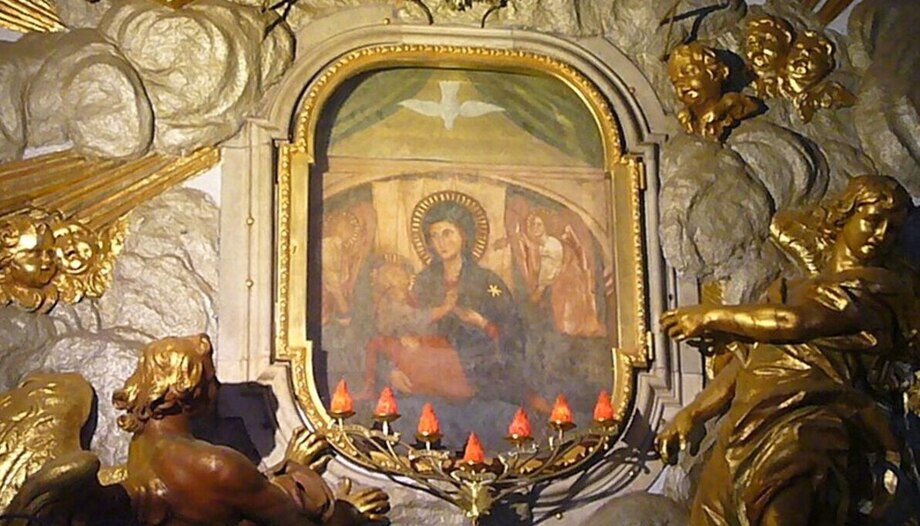Until a few weeks ago, not many people knew of the existence of the convent of Santa Clara de Belorado. Beyond the area, where the community was especially loved and some scattered regional news about the baking work of the nuns, the life of this monastery and its surroundings was marked by tranquility and practically no media exposure.
The story took a turn on May 13 when, in an unusual way, the abbess of the community, Sister Isabel, announced that she had signed, on behalf of the entire community, a document formally abandoning the Catholic Church, called "Catholic Manifesto". In this document, the nun affirmed that the Catholic Church is heretical and schismatic and placed the community under the jurisdiction of Pablo de Rojas, who claims to be a bishop and is the head of the sect known as "....Pious Union of St. Paul the Apostle"..
This abandonment of the Catholic Church, it seems, had been made through a request signed by the abbess herself on May 8 and accepted by Pablo de Rojas on May 10, 2024.
What makes a community decide to take such a step? Is it a religious question, or is there something else? What is the Pious Union? What happens to the monasteries if the nuns abandon the Catholic faith?
The answers to these questions are varied and certainly do not cover the full reality of a situation that is more like a farce than anything else. In the Belorado case economic and religious issues converge. There are various nuances and issues that have converged in an almost grotesque situation whose outcome remains unknown.
The "Catholic Manifesto
The Catholic Manifesto published by the Sisters of Belorado is a 70-page document that reproduces the main ideas of the so-called "Theological positioning." of the sect.
The document defends the idea that Pius XII was the last legitimate Pope and after his death "the See of St. Peter is vacant and usurped".
According to this manifesto, the Catholic Church is schismatic and has betrayed Christ. The Vatican Council is, according to this document, a heretical act and the subsequent Church, illegitimate. The bishops and priests are a kind of "heretics, thieves, perfidious and blasphemers". Among other affirmations, it maintains that "Ratzinger was a great heretic with the patina of a conservative" and Pope Francis is called "Mr. Bergoglio", "who is not a bishop, not even a priest".
The Manifesto, signed only by the former abbess "in my name and in the name of all the sisters of the two monasteries located in Belorado and Orduña", affirms categorically that they will not obey those they consider heretics and makes a confused invitation to all the people who "want to be saved" to leave the Church or "sect of the council".
Is it a schism? Technically yes, since according to canon 751 of the Code of Canon Law, schism is "the refusal of subjection to the Supreme Pontiff or of communion with the members of the Church subject to him". More accurately, we are faced with the adherence of a number of persons to an already constituted schismatic sect.
The Belorado community
The Monastery of Santa Clara in the town of Belorado, Burgos, is a monastery of Poor Clares whose first construction dates back to the 14th century. The building was sacked by the French troops at the beginning of the 19th century and later disentailed by Mendizábal. The nuns recovered the convent and, since then, nothing had changed in a quiet monastic life marked by the work of the nuns' bakery.
The monastery is part of the Federation of Poor Clares of Our Lady of Arántzazu together with forty other monasteries, including Vitoria and Derio.
At present, the community of Belorado is composed of fifteen religious. Of these fifteen, "the five eldest are outside this whole process," according to a source in the archbishopric of Burgos. The situation of these five older sisters, who are over 80 years old, is the focus of much of the concern of both the archbishopric and the superiors of the Federation of Poor Clares of Our Lady of Arántzazu. Although both understand that they are well cared for, they have serious doubts that they are aware of what is happening in their community.
Following the publication of the Catholic Manifesto and the subsequent declarations of the other 10 nuns, each nun received a summons to appear before the ecclesiastical tribunal individually in order for them to second the step taken or retract it.
This summons was served on June 6. The three main superiors of the community - the former abbess, Sister Isabel, the former vicar, Sister Paz, and the former fourth discreet, Sister Sión - were given 10 days to appear before the Ecclesiastical Tribunal of Burgos on suspicion of schism, a period which the archdiocese extended for another five days, at the request of the nuns.
The other 7 sisters were given 15 days to make this appearance. June 21 will be the date on which the sisters will have to decide, one by one, if they will break with the Catholic Church.
In the event that they continue with the position they have held since May 13, the nuns will be excommunicated for the same reason. (excommunication latae sententiae)), they would be excluded from religious life and prohibited from exercising various baptismal rights.
If they retract, as the archbishopric of Burgos points out, "they will continue in the community and it will be the federation that will decide". In the archbishopric they emphasize their willingness to "dialogue until the last minute, but we must be aware that if these people voluntarily abandon the Catholic Faith they cannot continue living in a place that belongs to the Church".
Bishop Iceta appointed Commissioner
On May 28, in view of the events and after the request of the Poor Clare Federation of Our Lady of Aránzazu, the Holy See named Bishop Mario Iceta Gavicagogeascoa "pontifical commissary ad nutum Sanctae Sedis" of the monasteries of Belorado, Orduña and Derio. This appointment grants him "all the rights and duties that the universal law of the Church and the proper law of the Institute attribute to the Major Superior and his Council, including legal representation in the civil sphere". The Archbishop of Burgos then created a management commission, of which the following are members "the president of the Federation of Our Lady of Aránzazu, mother Javier Sotoand its federal secretary, Carmen Ruizwho will watch over the care of the community. Together with them, the judicial vicar of the archdiocese, Donato Miguel Gomezwill be in charge of canonical matters, while the director of Legal Affairs of the Archbishopric will be in charge of canonical matters, Rodrigo Sáizwill coordinate the aspects related to the civil field. They will also count on the collaboration of a professional firm for the administration of the monasteries and their assets and will be in charge of carrying out an audit and an inventory. Likewise, and if necessary, they will count on the help of professional offices of legal services, in civil, fiscal or criminal matters.".
With this appointment, the legal civil representative of everything related to the Monastery became the Archbishop of Burgos, so that "he has the right and duty to watch over, above all, the people who live in the monastery, particularly the elderly sisters, the contracted workers, the proper management of financial movements, as well as the management of all movable and immovable property" as highlighted in the note issued by the Archbishopric of Burgos to announce this appointment.
[Enlargement of the news item]
On June 21, the Poor Clares sent a burofax to the Archbishopric of Burgos, which had extended the deadline at the request of the nuns, in which they expressed their "unanimous and irreversible position" of abandoning what they describe as a church "born of Vatican II larceny".
The nuns claim that the Code of Canon Law is not "competent". This is completely implausible and has placed the dialogue with the Archbishopric in the hands of civil lawyers.
The convent's accounts
The nuns of this community, led by the former abbess, Sister Isabel, have not responded to the incessant requests for dialogue addressed to them both by the federation of Poor Clares to which they belong and by the archbishopric of Burgos. Their communications are made through their blog or in the national media.
The nuns of Belorado have used their blog and social networks to "denounce" their disagreement with all the measures imposed from the Holy See, although, for the moment, they have not established direct contact with the Federation of Poor Clares nor with the Archbishopric. In the last few weeks they claimed they could not access their "bank accounts, given that D. Mario has taken control of them, thus blocking access to the fruit of our daily work", something that has been firmly denied by the Archbishopric of Burgos since "the sisters know that they can count on everything they need through the federal secretary, Sister Carmen". With the appointment of the commissary, "the accounts of the convent have been intervened, following the usual process of a pontifical commissariat" the archbishopric points out, "the receipts continue to be paid, but the nuns cannot withdraw money since they are no longer empowered to do so". Carmen, who was expelled when she went to the convent on June 6 to ask what they needed and to see the elderly sisters.
From the archbishopric, in a note issued on June 13, they pointed out that "they are working with the banks so that there is no problem of payment to those who legitimately have the right to payment: supplies, payroll, receipts, etc."They said that they were still "waiting for the sisters to communicate to us the necessary amounts required for the usual expenses of ordinary life", a step that the nuns have not taken because, according to them, if they request the money from the Archbishop "it would mean, de facto, the recognition of the legitimacy of the usurpation".
On the part of the Archbishopric of Burgos and the Federation of Poor Clares of Our Lady of Arántzazu, the pertinent legal steps in the civil and canonical sphere have been taken correctly and the legal representative of the Monastery of Santa Clara de Belorado in the registry of the Ministry of the Presidency, Justice and Relations with the Courts is Mario Iceta Gavicagogeascoa, Archbishop of Burgos.
Is the Pious Union of St. Paul the Apostle a sect?
Yes, this group is classified as a sect in the book of the expert Luis Santamaría. "On the outskirts of the Cross", published by the Biblioteca de Autores Cristianos in 2023. The volume gathers a hundred sects of Christian origin or appearance.
In his introduction, Santamaría explains that "the fact that most of them use the name 'Church' shows their intention to present themselves as the true Church of Christ or, sometimes, as a new and independent, but totally legitimate, grouping within the universal Church. They usually coincide in their claim to recover what is genuinely Christian - which would have been betrayed in the historical Churches and ecclesial communities from which they have broken away - and in their claim to greater openness to all humanity, without strict norms, admission criteria or excommunications."
– Supernatural Pious Union of St. Paul the Apostle "it considers itself the true Church of Christ, and for this reason its leader always presents himself as a 'Catholic, apostolic and Roman bishop', as well as referring to the Catholic Church as "the sect of the council or of 'Monsignor Roncalli'".
This group professes sedevacantism "in such a way that it does not recognize any bishop of Rome after Pius XII. Neither does it admit the validity of the sacraments celebrated in the post-conciliar Catholic Church".
A look at the Pious Union of St. Paul the Apostle website gives a brief idea of the lines of this minority group. The theological position from which the manifesto signed by the former abbess of Belorado is born is a sum of texts and phrases taken from preconciliar documents, overloaded language and terminology "stolen" from various institutions of the Church.
The theological position emphasizes that "with the death, on October 9, 1958, of the last legitimate Pope, until now, H.H. Pius XII, and with the convocation of the "Second Vatican Council", the "conciliar church" arose, which attempts to eclipse the Catholic, Apostolic and Roman Church", and describes the Catholic faithful as "acatholics".
The theological position mixes questions of a moral nature with canonical and magisterial issues.
– Supernatural Pia unión is presented as "a sort of Warrior Militia predestined to excel over all that exists" and "it is not open to priests, religious or simple faithful who only want to benefit spiritually or sacramentally, since for this it is necessary to be subjects of the Most Reverend Her Most Reverend Dr. Pablo de Rojas Sánchez-Franco and to collaborate with the Pious Union". Dr. D. Pablo de Rojas Sánchez-Franco and collaborate with the Pious Union".
– Supernatural Pia Union The Pious Union's website states the prohibition of "manifesting to strangers that they are members of the Pious Union", the sacraments can only be received in chapels of the institution and rules of such nature are established. sui generis such as forcing women to wear "skirt, stockings, French sleeves at least, and for men, if possible, a blazer and tie, otherwise they can wear colored chino pants, never jeans, and a long-sleeved shirt, with two turns at the cuffs, mostly for aesthetic reasons, as our founder says "baker's sleeves are very ordinary" (short sleeves)".
The "characters
Who is this Pablo de Rojas? Are there many followers of this Pious Union of St. Paul the Apostle? Numerous media have profiled the leader of this hitherto almost unknown sect.
The description that Luis Santamaría makes, in the first pages of "A las afueras de la cruz" about the founders and heads of many of the sects of Christian origin, is applicable as a description of the self-styled bishop Rojas. These are people who have "been rejected in seminaries, novitiates and other houses of formation, or have abandoned them, or have been expelled from them. There are also cases of people who have sought ordained ministries and have not achieved them. So, as a vital alternative, they have decided to join schismatic movements or, after having obtained a priestly ordination or episcopal consecration, they have created their own "church", entering into a dynamic of mutual recognitions and ordinations and in the creation of complex structures with bombastic names and superimposition of adjectives to pretend to show an ecclesiastical seriousness that they lack".
Pablo Rojas is a native of Jaén and the biography he presents on the website of the Pious Union of St. Paul the Apostle is full of inconsistencies and strange facts such as having received communion at the age of five in Spain in the 1980s or having been ordained a priest twice.
Textually from his website: "[Rojas]He was 'confirmed' in Madrid in 1993 by 'Mons. de Galarreta, "bishop" of the Fraternity of St. Pius X, 'consecrated' by 'Mons. Lefevre. In 2005 he received the Sacrament [of Holy Orders] by Bishop Shell on May 13, 2005 and on June 28, 2010, 'sub conditione' from the hands of Bishop Subiron." Both Derek Schell and Ricardo Subiron were excommunicated for their membership in the sect of the Church of Palmar de Troya.
Rojas settled in Bilbao where it was common to see him walking around dressed as a bishop in the old style and accompanied by José Ceacero (known by his nickname of "Rojas"). barman priestHe also claims to be a priest and acts as "spokesman" for the nuns of Belorado.
In 2019, Bishop Mario Iceta, then Bishop of Bilbao, signed a decree declaring Pablo de Rojas excommunicated in which he stressed that "he himself (Rojas) has claimed to have had himself consecrated Bishop by Mr. Daniel L. Dolan, of the line of the schismatic Bishop Ngô Dình Thuc, incurring in the crime of schism ex can. 1364 § 1 C.I.C.
Ad abundantiamThe celebration of various sacraments in our Diocese ex can. 1378 § 2, no. 1 and 2 C.I.C., has been attentive to the celebration of various sacraments in our Diocese ex can. 1378 § 2, no. 1 and 2 C.I.C.
He has contumaciously relapsed last June 28, 2019 in the crime typified in canon 1382 CIC; having himself re-consecrated Bishop by the schismatic Bishop Williamson, currently in a situation of excommunication."
Purchase and sale of monasteries
This anomalous situation is related to the properties of three monasteries. The three properties are part of the Federation of Our Lady of Arantzazu (Province of Cantabria - Poor Clare Sisters) and are the Poor Clare monasteries located in the towns of Derio (Vizcaya), Belorado (Burgos) and Orduña (Alava).
The start of these monastery sale and purchase transactions dates back to 2020.
In 2020, the monastery of Orduña, owned by the Poor Clares of Vitoria, was canonically suppressed and empty. In October of that year, the community of Belorado signed an agreement for the purchase and sale of this monastery for an "amount of 1,200,000 € and with a delay of two years. In this act of sale and purchase, they contributed 100,000 € and committed to make semi-annual payments of 75,000 €", according to the note issued by the archbishopric of Burgos. At that time, part of the Poor Clare community of Derio left this property and moved to Orduña.
The original idea seemed to be to sell the Derio monastery in order to buy the Orduña monastery. However, the sale of Derio has still not taken place, so it was unfeasible to undertake the payment of the second one. In fact, although the first payment for the purchase was to be made on November 1, 2022, no payment has ever been made.
This was the situation when, in March 2024, the abbess of Belorado, Sister Isabel "declared that she had a benefactor who would buy and put the Monastery (Orduña) in the name of the benefactor himself, reach an agreement on its use and resell it to the community of Belorado when they obtained the proceeds from the sale of the Monastery of Derio".
The secrecy of this operation and "the suspicions that this person was alien to the Catholic Church" expressed by the Poor Clares of Vitoria, lead the bishop of this diocese and his vicar for consecrated life, to go to Orduña on March 21, 2024 to inquire about this benefactor. There they were told that the abbess was in Belorado, so the prelate and the vicar went to the other monastery, located 100 kilometers away. Once in Belorado, "they were informed that Sister Isabel could not receive them and they were received at the lathe by the vicar, Sister Paz and the fourth discreet, Sister Sión".
Neither of the two nuns told the bishop the identity of the buyer. A month and a half later, his identity is still not really known.
The community of Vitoria, owner of the monastery of Orduña, which had not received any payment, decided to terminate the contract and summoned the community of Belorado before a notary.
As the note issued by the Archbishopric of Burgos on May 13 points out, Sister Isabel, accompanied by Sister Paz and Sister Sión, handed over a document "claiming 1,600,000 € as payment for the amount of the works carried out by her community in the Monastery of Orduña and a 30% for damages". The former abbess did not accept the termination of the contract and decided to take the matter "to the courts". The community of Vitoria has expressed its intention to recover the property of the monastery of Orduña and expel the nuns from Belorado through civil proceedings.
What does the Code of Canon Law say?
According to the Code of Canon Law, canon 634, "institutes, provinces and houses, as juridical persons in their own right, have the capacity to acquire, possess, administer and dispose of temporal goods, unless this capacity is excluded or limited by the constitutions" but it notes in canon 634, § 3.3, that "for the validity of an alienation or of any operation in which the patrimonial condition of a juridic person may suffer prejudice, the license of the competent Superior given in writing, with the consent of his council, is required. But if it is a matter of an operation in which the sum determined by the Holy See for each region is exceeded, or of goods donated to the Church, because of a vow, or of objects of great price because of their artistic or historical value, the license of the Holy See itself is also required". In the case of Spain, the figure that requires the explicit permission of the Holy See is 1,500,000 euros.
Another relevant provision in this matter is canon 639 of the Code of Canon Law which, in its first point, states that "if a juridical person contracts debts and obligations, even if it does so with the license of the Superiors, it must respond for the same", and in the third point it states that if "a religious contracts debts and obligations without any license from the Superiors, he personally responds, and not the juridical person". Two points that suppose a serious problem for the religious of Belorado, who cannot assume the debt contracted both for the purchase of the monastery of Orduña and for the works undertaken in the same building when the community arrived from the monastery of Derio.
Chronology:
October 2020
Signing of the agreement between the community of Derio-Belorado and the community of Poor Clares of Vitoria for the purchase and sale of the Monastery of Orduña.
October 28, 2020
Transfer of the community of Derio to the monastery of Orduña.
March 2024
Declaration of the abbess of having a benefactor who will pay for the purchase of the monastery of Orduña.
March 21, 2024
Attempted dialogue with the abbess by the bishop of Vitoria to find out the identity of the buyer.
April 12, 2024
The episcopal delegate for the consecrated life of the archdiocese of Burgos visits the monastery of Belorado. He is attended by two sisters and not by the abbess. The dates of May 27, 2024 for a canonical visit to Belorado, May 28 to Orduña and May 29 for the election of a new abbess are agreed upon (by telephone).
April 13, 2024
The president of the Federation of Our Lady of Arantzazu communicates to the Archbishop of Burgos her suspicion of a possible schism crime.
April 24, 2024
The bishops of Vitoria and Bilbao and the archbishop of Burgos sign a decree opening a preliminary investigation into a possible schism in Belorado.
May 7
Attempted rescission of the agreement of purchase and sale of the Monastery by the community of Poor Clares of Vitoria. Refusal of Sister Isabel.
May 13, 2024
Sister Isabel signed, in the name of the community of Belorado, a document of formal abandonment of the Church, the so-called "Catholic Manifesto" and submitted to the jurisdiction of Mr. Pablo de Rojas.
The chaplain of the convent visits the community and manages to speak with the vicar Sister Paz. Paz confirms by telephone to the Archbishop of Burgos the "abandonment of the Catholic Church by the whole community and declares that the decision has been taken unanimously by all the nuns".
May 29, 2024
Date of expiration of the appointment of Sister Isabel as abbess of the Monastery of Santa Clara de Belorado.
Appointment of Msgr. Mario Iceta as "pontifical commissioner ad nutum Sanctae Sedis"The monasteries of Belorado, Orduña and Derio.
June 6, 2024
Sister Carmen Ruiz, Secretary of the Federation of Poor Clares of Our Lady of Aránzazu; Rodrigo Sáiz, proxy of the Pontifical Commissioner; Carlos Azcona, notary of the Ecclesiastical Tribunal, and the notary María Rosario Garrido, went to the convent of Belorado to carry out the process determined by the Holy See and were expelled from the convent.
June 16, 2024
End of the deadline given to the former abbess, the former curate and the former fourth discreet to come to testify before the Ecclesiastical Tribunal. In response to the request for an extension of the deadline, the archbishopric granted five more days.
June 21, 2024
The deadline given to the nuns of the Belorado community to go to the Ecclesiastical Tribunal to testify has expired.
 "We are all called to know the impact of abuse," pope says
"We are all called to know the impact of abuse," pope says Sexual abuse in the Church. The deep wound
Sexual abuse in the Church. The deep wound Carmen PeñaCanon Law is responsible for creating a framework for the prevention of abuses".
Carmen PeñaCanon Law is responsible for creating a framework for the prevention of abuses".




